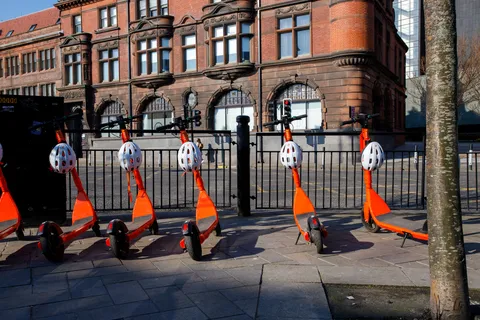
Weaning people off their dependence on private cars is the focus of a new pledge from around 50 public, private and non-profit organisations.
Announced at this week's 2022 National Shared Mobility Summit in Chicago, the Shared Mobility Action Agenda seeks by 2030 to make equitable, low-carbon shared mobility "more convenient, more practical, more available, easier to use, and even more accessible and more affordable than driving a car".
The Agenda is due to be released later this summer, but the immediate goal is to continue to grow the number of participating organisations in support of all shared transport options, "from public transportation to ride-hail, from car-sharing to on-demand responsive microtransit, from shared bikes and scooters to paratransit".
It comes as new figures from the Governors Highway Safety Association show that drivers in the US killed an estimated 7,485 pedestrians in 2021 – the most in a single year in four decades and an average of 20 deaths every day. This is on top of road deaths overall in the US last year reaching a 16-year high.
“The gas price spike has - again - made many of us painfully aware of our overreliance on cars. While electrification is necessary, it’s not enough to solve our systemic mobility problems,” said Benjamin de la Peña, CEO of the Shared-Use Mobility Center.
"The Agenda and Action Network intend to make shared mobility the first and best option over car ownership within the decade. We need to do this to fight climate change, make mobility more equitable, and to help households save money. This isn’t just another sign-on document. We’ve developed a to-do list to actually get it done.”
Shared mobility strategies can deliver on the promise of safer roads, more equitable transportation, and the sustainable movement of people and goods – if done right, insists Marla Westervelt, vice president of policy at Coalition for Reimagined Mobility.
“Coming together with an influential network of public, private and community advocates, we can collaborate and act to shape the transportation of tomorrow and address the current global energy security and climate crises," Westervelt adds.
“The devil is always in the details,” said Kevin Chambers, founder and principal of Full Path Transit Technology.
“There are so many ways that shared mobility can be done wrong. Getting so many organisations and individuals with different perspectives together to collaborate on the best paths forward will help ensure we make measurable advances on shared mobility. A priority for me has been making sure that the agenda includes the needs of rural and community-based mobility services.”










